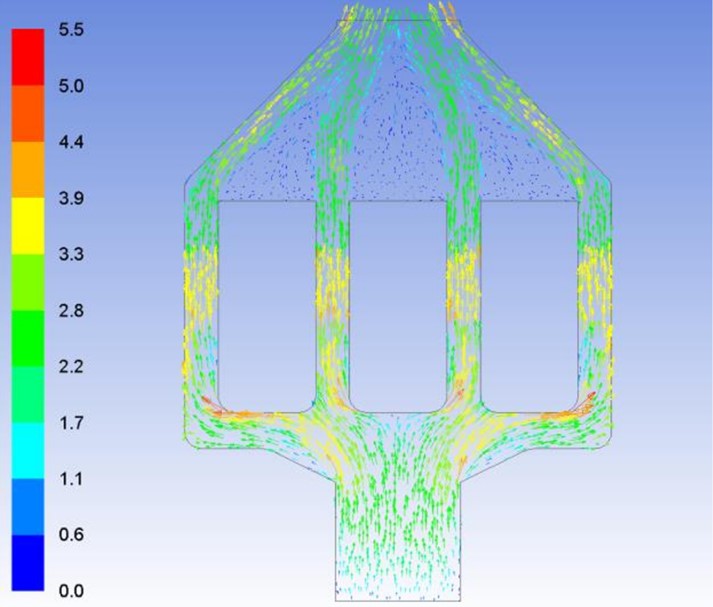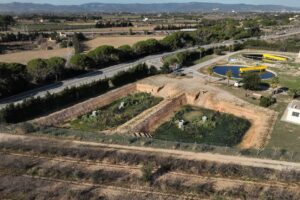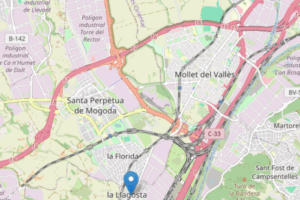
Modular, customizable exoskeletons for patients with neurological disorders
December 18, 2020
New integrated strategies to reduce the use and impact of pesticides on grapevines and olive trees
December 20, 2020The Heat and Mass Transfer Technological Centre (CTTC) led the Innovative Cooling System for Embedded Power Electronics (ICOPE) project, to design a new cooling system for power electronics integrated in aircraft.
The gradual advance towards hybrid electric aircraft or possibly totally electric aircraft generates new challenges in the heat management associated with the generation, accumulation and emission of high voltage electric energy.
In recent years, technologies used for the cooling of power electronics and/or other semiconductor devices have shifted from air-cooled systems to liquid-cooled systems or evaporation phase transmission processes, to manage the increases in power per unit of volume (reduction in electronic size).

With the new types of power semiconductors, manufactured with more efficient materials from a thermal perspective (less losses and more resistance at high temperatures), the opportunity to re-assess the use of air-cooled systems has opened up. These systems weigh less and in general are more reliable and require less maintenance.
Therefore, as part of the project, new concepts of air-cooled heat sinks have been developed by integrating advanced materials such as “annealed pyrolytic graphite” (APG) and “metal matrix composites” (MMC). These can dissipate the amount of heat that these power electronic systems generate and keep them at a suitable temperature. These new heat dissipators have been designed, optimised, prototyped and tested by replicating the power electronic systems of an aircraft. In addition, their final integration into a system of four conversion modules (design, construction and testing) has been analysed to ensure that the air distribution was sufficient to maintain the expected cooling, according to the project requirements.
Two other partners were involved in the project: AAVID Thermacore Europe Limited of the United Kingdom and Schunk Carbon Technology GMBH of Austria. ICOPE lasted three years (June 2017 – August 2020) and had a budget of €943,507.


Figure 1. Left: conceptual model of the air cooling conduit for cooling the power electronics system. Right: simulation of air distribution in its interior.
Figure 1 shows the implementation of this new air cooling system as a simple, reliable solution that eliminates additional components and systems and substantially reduces the weight and complexity of current systems. This makes the design more competitive.
Related Projects
- A research team from the UPC, in collaboration with the company B. Braun Surgical, has created a ceramic and biocompatible catalyst that captures greenhouse gases and transforms them into useful chemical products in a more sustainable way and at a lower cost than current technologies. The technology has successfully passed the pilot phase through joint projects with companies from different sectors.
- The company Trace ID and the group Twin Investors, in collaboration with the Textile Technology research group (TECTEX), which is part of the Institute of Textile Research and Industrial Cooperation of Terrassa (INTEXTER) at the Universitat Politècnica de Catalunya - BarcelonaTech (UPC), are developing electronic devices to identify, monitor, and study the traceability of the products in which they are embedded.
- The Hydrogeology Group (GHS) at the Universitat Politècnica de Catalunya - BarcelonaTech (UPC) is participating in the LIFE REMAR project to develop an innovative and sustainable solution for the reuse of treated wastewater through infiltration, with the aim of increasing the availability of freshwater resources and improving the state of ecosystems.
- A team from the Environment Centre Laboratory (LCMA) of the Universitat Politècnica de Catalunya - BarcelonaTech (UPC) is taking part in a study commissioned by the city councils of la Llagosta, Mollet and Santa Perpètua (in Vallès Occidental), with the main objective of identifying the impact of industrial plants on the generation of unpleasant odours and continuously monitoring air quality in these municipalities.




